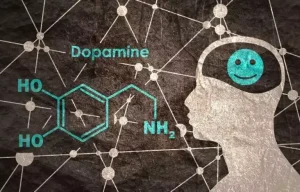
A well-thought-out strategy and readiness can make the amends process more effective and meaningful. Thorough preparation ensures your actions align with your intentions and positively contribute to your recovery journey and the relationships you are trying to mend. David Kessler discusses a living amends in his latest book, Finding Meaning. In his living amends book he shares the situation of a woman who has a fight with her brother. Though he calls her following the argument, she doesn’t answer. Though we would certainly suggest she read some of our other posts on seems like regret and self-forgiveness, we also deeply appreciate the option of a ‘living amends’.
Step 9: The Best 5 Tips for Living Amends

Trust the recovery process and believe in God to truly prosper! Indirect amends is when you do not make a face-to-face confession of your wrongs against someone. This occurs when you decide to do something like write a letter that you decide not to send because of the harm it may cause the individual to whom it is addressed. The thing that’s great about forgiveness is that once it’s over, you’ve accomplished one of the hardest parts of this step in the recovery process. Celebrate Recovery Step 9 will introduce forgiveness in recovery. In past lessons, you learned how to make a list of amends.
- Take your time as you go through the 12 steps of recovery, and God will reveal what you need to do.
- If making an amends means exposing ourselves to triggering environments, we ought to reconsider and discuss healthy alternatives with a sponsor or addiction counselor.
- We are only in control of our part—making and living the amends.
- If you’re untrustworthy and unreliable, come to terms with those characteristics of yours.
- When we give our amends, as mentioned in the last step, we should not expect anything in return.
Harmony Haus
When a person has died, you can still make amends for your actions. Although, you’ll have to find a different way to do so and in a way that makes a lasting impact on you and the people you love who are still here. It is not enough to help someone only once or to reach out sparingly. If you want to show your loved ones and yourself that you are on a better path and making positive changes, you must continue showing up and remain focused on your recovery.
Dogs Are Resilient: People Are Resilient Too
Thank you again for taking the time to listen (or read this) and please reach out if you have any questions or feedback in the future. Take action to correct past mistakes—for example, paying someone back. Accept responsibility for the impact of your actions on others. Recovery.com uses a standard procedure to make sure treatment provider profiles on our site are current and complete. We go back to a moment in time and we fixate on the things we wish we had done differently.
- The response to amends can vary widely; some may refuse to engage, leaving the individual feeling disheartened.
- Researched, fact-checked and transparent articles and guides that offer addiction and mental health insight from experts and treatment professionals.
- When making amends it is important that you focus on your behaviors only and your amends.
- Recovery.com combines independent research with expert guidance on addiction and mental health treatment.
- Making amends involves acknowledging and correcting past behaviors.
- We are seeking accountability for our own actions and holding ourselves to the standards of our own values and our 12 Step program.
If you have a reaction to their feedback, pause and just listen then share your thoughts about this with your support system, therapist or sponsor. While everyone’s path to addiction recovery is different, rebuilding damaged relationships is one of the first goals many people have after they achieve sobriety. Isolation, deception and secrecy are defining characteristics of active addiction, all of which undermine trust and intimacy. After driving others away with your self-destructive behavior, making amends is one way to start repairing those connections. Those who are unfamiliar with the treatment and recovery process may not understand the meaning of making living amends when it comes to sobriety.

Get the Help You Need Today At Beaches Recovery

At Pillars Recovery, drug addiction helping you heal from your substance use disorder is our primary goal. We will meet you wherever you are on your journey and determine the best treatment plan for you from our full continuum of care. We know there is no one-size-fits-all solution to managing the disease of addiction, and that’s why we take a personalized approach with every client.
Challenges in The 9th Step Process
- Don’t expect immediate forgiveness, and also, don’t pressure yourself to fix every broken relationship immediately.
- Instead, making amends means you apologize for what you’ve done and make it right.
- To learn more about addiction recovery, including AA, reach out to Silver Mist Recovery.
- Making any type of amends can be challenging, but in this article, we’ll focus on living amends and tips for how to make them.
Making living amends can take on many different forms depending on the relationship to those affected by the wrongdoing. In most cases, the offender owes apologies to the people closest to them, like their friends, parents, and children. Another example would be of a person who’s been a taker all their lives suddenly decides they no longer want to be self-centered and selfish. They may choose to make living amends by promising to change their ways and become more helpful to others. Living amends, in this event, can include making changes to the behaviors contributing to the falling out between the survivor and the person they owed an apology to.

Dressing for the Life I Once Had
- Step Nine can leave you emotionally exhausted; it’s a difficult step to navigate.
- It’s also about showing them and yourself through your actions that you are dedicated to your sobriety.
- Through guidance, education and therapy, FHE Health can help a person begin to rebuild their relationships with self and others.
- Katie is experienced in dialectical behavioral therapy (DBT), expressive therapy, animal therapy, motivational interviewing and life coaching.
- It also shares useful coping tools, and helps the reader reflect on their unique relationship with grief and loss.
They get the opportunity to express how my actions affected them. Join our global mission of connecting patients with addiction and mental health treatment. Recovery.com combines independent research with expert guidance on addiction and mental health treatment. Our mission is to help everyone find the best path to recovery through the most comprehensive, helpful network of treatment providers worldwide. If you have taken these steps in recovery, please leave a comment!
 صحيفة سودان بيزنس الاقتصادية صحيفة سودان بيزنس الاقتصادية
صحيفة سودان بيزنس الاقتصادية صحيفة سودان بيزنس الاقتصادية
